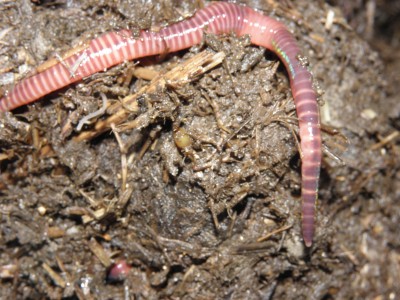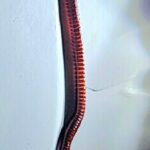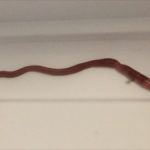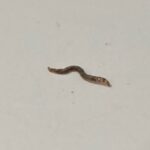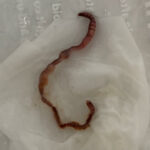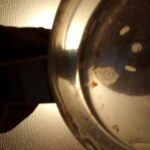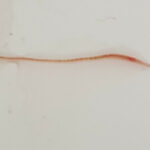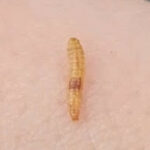Recently, we received a question from a woman who had a waterlogged wormery. She threw the entire contents into the compost bin and now she finds that her compost includes big, happy, healthy composting worms in it. She suspects that the composting worms are tiger worms. This is probably correct, since tiger worms (Eisenia fetida, also known as red wrigglers) are often used in wormeries. They’re great little composters.
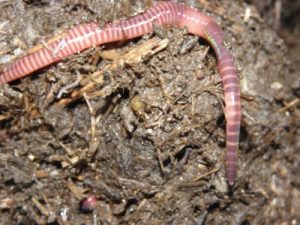
She is concerned that the tiger worms that get into her garden will out-compete her local earthworms and take over, and is also wondering if the neighborhood birds will be as willing to eat the tiger worms as they are the local worms.
First of all, for those who are not familiar, a wormery (a.k.a. “worm composter”) is a smallish compost bin, typically used to break down kitchen scraps into fertilizer. The worms eat the decomposing kitchen scraps, and produce fertilizer. Scraps are added until the bin is full and the worms have eaten all of the scraps. Then the worms are removed and the fertilizer can be used in the garden.
Our reader’s first question was, “Will the tiger worms out compete her local worms?” The answer is probably not. Unless, of course, her garden has a lot of rotting plant material, but then there are likely other forces at work. Tiger worms cannot eat living plant material as they have no teeth or any other way to break down solids. It’s likely that the tiger worms will die (or move on to less-green pastures) relatively quickly once their food source runs out. So, her local worms have little to worry about.
The second question she had was, “Will the local birds eat the tiger worms?” The answer is yes, if they can get to them. The birds are not going to differentiate between the types of worms and will be happy to eat either one.
There are several lessons here:
- The waterlogging of the wormery did not kill off the worms living in it, and could have been used as-usual once it dried out.
- Tiger worms will happily live in most compost heaps.
- Introducing composting worms into your garden is unlikely to cause harm to either your garden or to the worms native to your garden. In fact, it’s likely that a few of those composting worms end up in your garden when you empty your wormery, no matter how hard you try to remove them.
All About Worms is always free, always reader-supported. Your tips via CashApp, Venmo, or Paypal are appreciated! Receipts will come from ISIPP Publishing.
You might also find these guys interesting!
